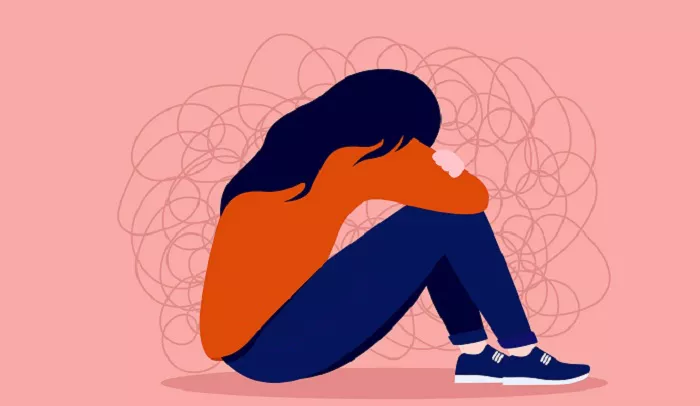Depression is one of the most common yet serious mental health conditions affecting people globally. Characterized by persistent sadness, loss of interest in daily activities, and a range of physical and emotional symptoms, depression can significantly impair quality of life. However, with proper understanding and effective strategies, it is possible to overcome this challenging condition. This comprehensive guide explores evidence-based psychological approaches to help individuals emerge from mental depression.
Understanding Depression
What Is Depression
Depression is not simply a passing mood but a complex mental health disorder that impacts thoughts, emotions, and behaviors. According to the Diagnostic and Statistical Manual of Mental Disorders (DSM-5), major depressive disorder involves experiencing five or more of the following symptoms for at least two weeks:
- Persistent depressed mood most of the day
- Markedly diminished interest or pleasure in activities
- Significant weight loss or gain unrelated to dieting
- Insomnia or hypersomnia nearly every day
- Psychomotor agitation or retardation observable by others
- Fatigue or loss of energy
- Feelings of worthlessness or excessive guilt
- Diminished ability to think or concentrate
- Recurrent thoughts of death or suicide
Types of Depression
Clinical psychology identifies several forms of depressive disorders:
Major Depressive Disorder: The most common form characterized by severe symptoms
Persistent Depressive Disorder: Chronic depression lasting two years or more
Seasonal Affective Disorder: Depression related to seasonal changes
Postpartum Depression: Depression occurring after childbirth
Bipolar Depression: Depressive episodes alternating with manic phases
Causes and Risk Factors
Modern psychology recognizes depression as resulting from multiple interacting factors:
Biological factors: Including neurotransmitter imbalances, hormonal changes, and genetic predisposition
Psychological factors: Such as negative thought patterns and low self-esteem
Environmental factors: Including trauma, chronic stress, and significant life changes
Medical conditions: Certain illnesses and medications can contribute to depression
Professional Treatment Approaches
Psychotherapy Interventions
Cognitive Behavioral Therapy (CBT) has shown particular effectiveness in treating depression by helping individuals:
- Identify and challenge negative thought patterns
- Develop more balanced ways of thinking
- Implement behavioral activation strategies
- Build coping skills for managing symptoms
Other therapeutic approaches include:
Interpersonal Therapy: Focusing on relationship issues
Psychodynamic Therapy: Exploring unconscious patterns
Mindfulness-Based Cognitive Therapy: Combining CBT with mindfulness techniques
Medication Options
Psychiatrists may prescribe various classes of antidepressants:
- Selective Serotonin Reuptake Inhibitors (SSRIs)
- Serotonin-Norepinephrine Reuptake Inhibitors (SNRIs)
- Atypical antidepressants
- Tricyclic antidepressants
- Monoamine oxidase inhibitors (MAOIs)
Medication should always be monitored by a qualified professional and combined with psychotherapy for best results.
Self-Help Strategies for Managing Depression
Establishing Healthy Routines
Creating structure can help combat depression’s paralyzing effects:
- Maintain consistent sleep-wake cycles
- Schedule regular meals with balanced nutrition
- Incorporate physical activity into daily life
- Practice good hygiene and self-care
Behavioral Activation Techniques
This evidence-based approach involves:
- Monitoring daily activities and mood
- Gradually increasing rewarding activities
- Setting achievable goals
- Breaking tasks into manageable steps
Cognitive Restructuring Methods
Challenging depressive thinking involves:
- Identifying automatic negative thoughts
- Examining evidence for and against these thoughts
- Developing more balanced perspectives
- Practicing positive self-talk
Social Connection Strategies
Combating isolation is crucial for recovery:
- Reach out to supportive friends and family
- Join support groups or community activities
- Consider volunteering opportunities
- Limit time with negative influences
Stress Management Approaches
Effective techniques include:
- Progressive muscle relaxation
- Deep breathing exercises
- Meditation and mindfulness practices
- Journaling for emotional processing
Lifestyle Modifications for Depression Recovery
Nutritional Considerations
Research suggests certain dietary patterns may influence mood:
- Increase omega-3 fatty acids from fish and nuts
- Ensure adequate B vitamin intake
- Maintain stable blood sugar levels
- Stay hydrated throughout the day
Exercise and Movement
Physical activity offers multiple mental health benefits:
- Releases endorphins and other mood-boosting chemicals
- Provides structure and sense of accomplishment
- Offers opportunities for social interaction
- Improves sleep quality
Sleep Hygiene Practices
Good sleep habits can significantly impact mood:
- Establish a consistent bedtime routine
- Create a comfortable sleep environment
- Limit screen time before bed
- Avoid caffeine and large meals in the evening
Substance Use Management
Depression recovery requires addressing:
- Alcohol consumption moderation
- Caffeine intake regulation
- Avoidance of recreational drugs
- Careful monitoring of prescription medications
When to Seek Immediate Help
Certain situations require urgent professional intervention:
- Active suicidal thoughts or plans
- Severe self-harm behaviors
- Psychotic symptoms accompanying depression
- Inability to perform basic self-care
In these cases, contact emergency mental health services or go to the nearest hospital.
Maintaining Progress and Preventing Relapse
Recognizing Early Warning Signs
Stay alert for:
- Returning negative thought patterns
- Withdrawal from social activities
- Changes in sleep or appetite
- Decreased motivation
Developing a Relapse Prevention Plan
An effective plan includes:
- List of personal warning signs
- Coping strategies that have worked before
- Emergency contacts and resources
- Scheduled follow-ups with mental health providers
Building Resilience Factors
Strengthen psychological resilience through:
- Developing problem-solving skills
- Cultivating optimism and gratitude
- Fostering strong social connections
- Practicing regular self-reflection
Conclusion
Overcoming depression is a journey that requires patience, persistence, and professional support. By combining evidence-based treatments with lifestyle modifications and self-help strategies, individuals can gradually regain control of their mental health. Remember that recovery is not linear, and setbacks are normal. The key is to maintain hope, continue implementing helpful strategies, and reach out for support when needed. With time and proper care, it is possible to emerge from depression and rebuild a fulfilling life.
If you or someone you know is struggling with depression, take the first step today by contacting a mental health professional. Help is available, and recovery is within reach.
Related topics:
- Can Being Alone Cause Depression?
- How to Apply for Disability Benefits for Mental Illness?
- Are Mood Swings a Sign of Depression?


